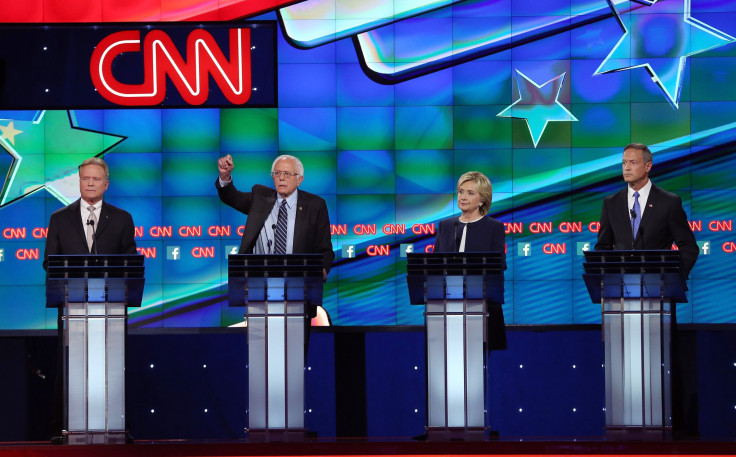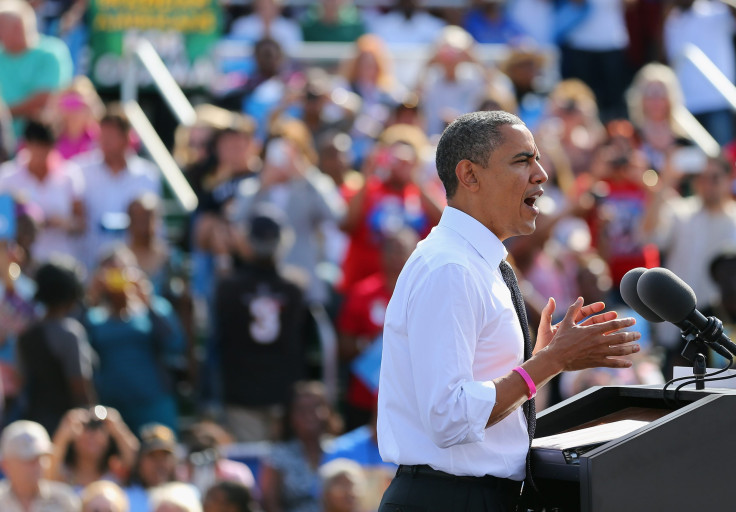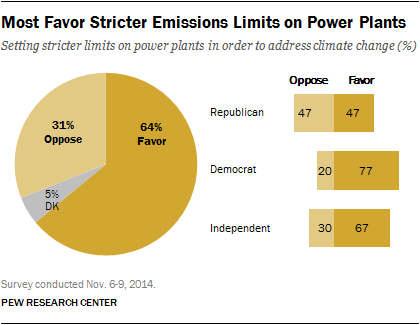CNN Democratic Debate: Climate Change Re-emerges As Key Issue In Democratic Presidential Debate

Unlike the Republican presidential candidates, the candidates on the other side of the aisle seem to be paying closer attention to polls showing increasing public concern over climate change. In the Democrats' first debate Tuesday night, the subject came up repeatedly throughout the two-hour event, marking a clear departure from the last two presidential election races.
The five Democratic candidates on the stage in Las Vegas promised throughout the two-hour event to expand the nation's renewable-energy sector, reduce greenhouse gas emissions and curb the use of fossil fuels in coming decades. Four of the five candidates mentioned the issue in their opening remarks, while climate change emerged a dozen times throughout the evening -- despite CNN allocating just one question to the topic, near the end of the proceedings.
Vermont Sen. Bernie Sanders pointed to climate change, rather than any foreign country, as the biggest national security threat to the United States. “The scientists are telling us that we need to move extremely boldly,” he said. “The future of our planet is at stake.”
Martin O’Malley, the former Maryland governor, pledged to move the U.S. to 100 percent renewable energy supplies by 2050. He dismissed the “all-of-the-above” energy strategy touted by the Obama administration, which includes both clean and conventional fuel and power sources.
Front-runner Hillary Clinton highlighted her track record on climate issues as secretary of state, saying she’d been on the “forefront of dealing with climate change.” She recalled working with President Barack Obama to bring China to the negotiating table at the 2009 United Nations climate talks in Copenhagen. Clinton also highlighted the Obama administration’s current role in helping secure a global emissions agreement at the U.N. summit in Paris this December. “We must get verifiable commitments from every country,” she said.
Ken Berlin, CEO of the Climate Reality Action Fund, a nonprofit group founded by former Democratic Vice President Al Gore, said the recent debates are “a major change from past presidential races, where we have seen candidates shy away from the topic,” he wrote in an email. “I was heartened to see climate change not just as a central topic in last night’s Democratic debate, but that it was brought up in this year’s Republican debates as well.”
Climate change was more of a sideline issue in the 2012 presidential race. Environmental groups and activists often criticized Obama, who was seeking re-election, for his “climate silence” on the campaign trail.

With the rise of conservative Republicans in Congress in 2010, energy and climate issues became a point of contention with the administration. Near the end of his first term, Obama downplayed his environmental agenda, delayed or weakened pollution regulations and championed offshore oil drilling and expanding U.S. oil and gas production. In Obama’s final debate against Republican challenger Mitt Romney in 2012, neither candidate made mention of climate change.
Climate issues gained slightly more attention in the 2008 election. Obama, then a senator, and Republican candidate Sen. John McCain both promised to pursue a cap-and-trade program to limit carbon emissions -- although neither candidate strongly emphasized the issue.
In the 2008 Democratic primaries, the issue received little more than passing nod, Rebecca Leber noted in the liberal magazine the New Republic. Obama cited climate change as “a major global challenge,” and Clinton called for an energy policy to “deal with climate change.” But neither candidate drilled down into policy specifics, or discussed the urgent threats of sea level rise, enduring drought, more violent storms and deadly heat waves.
In recent years, however, climate change has emerged as a major concern for American voters, who say they’re worried about extreme weather events, possible food shortages and political instability driven by climate disasters.
About 69 percent of U.S. adults say that global warming is either a “very serious” or “somewhat serious” problem, a Pew Research Center poll found in June, up from 63 percent in 2010. A separate Pew poll found a large majority of Americans -- 64 percent -- favor stricter emissions limits on power plants in order to address climate change.

The second Obama administration has doubled down on climate policy, pushing measures through executive orders rather than through the Republican-controlled Congress. The Environmental Protection Agency’s Clean Power Plan, finalized this summer, aims to reduce emissions from existing power plants to 32 percent below 2005 levels by 2050. Obama has also proposed or finalized measures to curb emissions from oil-and-gas sector operations, reduce smog-forming pollution from smokestacks and boost fuel efficiency in vehicles.
In this year’s presidential race, four of the five Democratic candidates have expressed support for the Obama administration’s climate strategy. Only one contender, former Sen. Jim Webb of coal-rich Virginia, actively opposed the EPA’s power plant regulations.
“The fact that the Democratic candidates chose to highlight climate change illustrates just how far we’ve come in even the past few years alone,” Leber of the New Republic wrote Tuesday night.
Republican voters are also awakening to climate change as an election issue, although the majority of the GOP presidential hopefuls have dismissed it as a major threat. A majority of Republicans -- including 54 percent of self-described conservative Republicans -- say they believe the world’s climate is changing and that humans play some role in the change, according to a survey by three prominent Republican pollsters and commissioned by the ClearPath Foundation.
On the Republican side, eight of the 15 candidates have acknowledged humans’ role in global warming. But even those contenders -- Jeb Bush, Carly Fiorina, Lindsey Graham, Jim Gilmore, Bobby Jindal, John Kasich, George Pataki and Rand Paul -- have expressed doubt over the extent to which humans are to blame for rising greenhouse gas emissions and warming global temperatures. The remaining GOP candidates have rejected the issue altogether.
In recent Republican presidential debates, candidates have discussed climate change, but largely in the context of their opposition to Obama's environmental agenda. “We don’t need this massive government intervention to deal with the problem,” New Jersey Gov. Chris Christie said during the CNN Republican primary debate on Sept. 16. “We shouldn’t be destroying our economy in order to chase some wild leftwing idea that somehow us by ourselves is going to fix the climate. We can contribute to that and be economically sound.”
Still, the fact that some Republicans no longer outright reject the scientific consensus on climate change shows progress, former South Carolina Rep. Bob Inglis, who heads the Energy and Enterprise Institute at George Mason University, told U.S. News & World Report in August. “In the Great Recession in 2010, it was this very atheistic position with regard to climate change: ‘We don't believe,’” Inglis told the news outlet. “Then, in the 2014 cycle, ‘I'm not a scientist,’ that was an agnostic position. These are data points on a trend line toward a tipping point.”
© Copyright IBTimes 2024. All rights reserved.





















